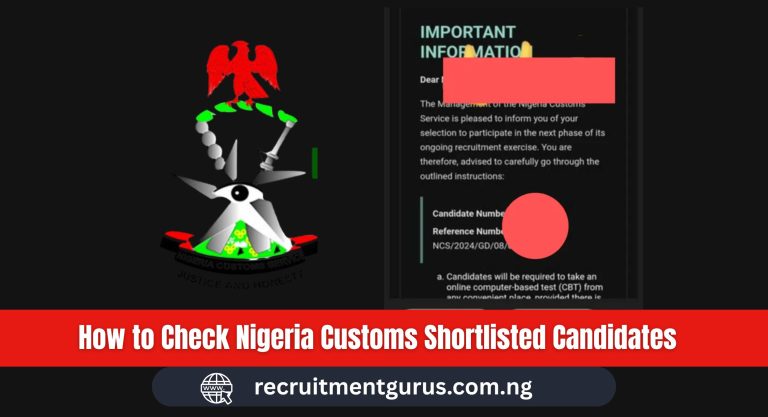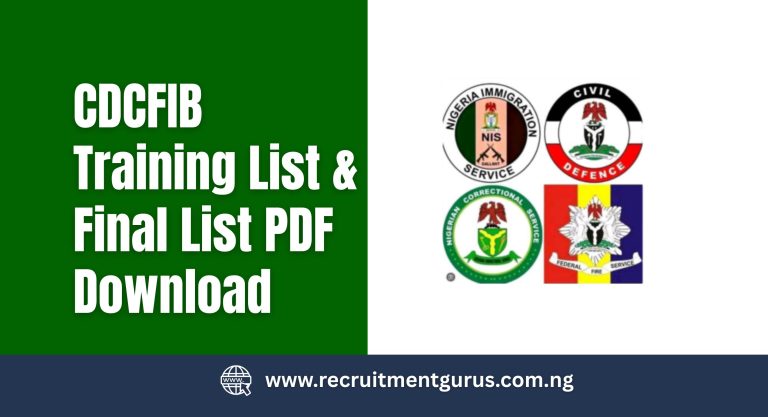Life Insurance Policies for Young Professionals in Nigeria
Entering the working world as a young professional in Nigeria is an exciting milestone. Whether you’ve just graduated, landed your first job, or moved into your first boss-role, this is the time to start laying a strong financial foundation. One of the often-under-appreciated but hugely important pillars of that foundation is life insurance. In this article, we’ll explore how life insurance fits into the financial lives of young professionals in Nigeria, what to look out for, why you should act early, and how to choose a policy that works for you.
Why Young Professionals Should Care About Life Insurance
1. Lock in lower premiums while you’re young and healthy
Premiums for life insurance are largely determined by your age and health status. The younger and healthier you are, the lower the cost. For example, young professionals in Nigeria can secure term life cover for as little as ~₦2,000–₦5,000 per month, depending on the sum assured and term length.
As one Nigerian news article put it: “The earlier you start, the easier the approval process.”
By starting early, you lock in favourable rates – waiting until you’re older, or until health issues appear, usually means higher premiums or greater difficulty getting cover.
2. Build a financial safety net for your loved ones
You might be single now and not yet supporting a spouse or children, but many young professionals in Nigeria still have dependents, parents, siblings, or are planning major liabilities like a car loan or home purchase. According to one guide, term life insurance “ensures that these liabilities are covered, preventing financial stress for your loved ones.”
If you are suddenly unable to generate income (due to accident, illness, or death), a life insurance policy can help ensure your dependents aren’t left burdened with debt or daily living costs solely because you were unable to contribute.
3. It complements wealth building and career growth
Young professionals are often focused on salary growth, investment, savings, and maybe starting a business. Life insurance isn’t necessarily about immediate returns, it’s about protecting your capacity to earn and build over time. One piece notes: “It’s not just about savings or investment, one often overlooked form of risk mitigation is insurance.”
By protecting your income-earning potential early, you minimise the risk that unexpected events sideline your plans for years.
4. Affordable entry into meaningful protection
In Nigeria the cost of obtaining life cover is increasingly accessible. One estimate says: for a 32-year-old non-smoker in good health, a ₦10 million term life cover for 20 years might cost between ₦6,000–₦9,000 per month.
In other words: for the price of perhaps a couple of nice lunches, you’re securing substantial protection for your family. That’s an excellent value given the financial stakes.
What to Consider: The Key Features & Terms
When you’re a young professional looking at life insurance in Nigeria, here are the main features and questions you need to ask:
A. Type of policy: Term life vs whole life vs investment-linked
- Term life insurance: Covers you for a specified period (e.g., 10, 15, 20 years). If you die during the term, the insured sum is paid out to your beneficiaries. Term plans tend to be the most affordable.
- Whole life (or lifelong) insurance: Coverage for your entire life, often with an investment/savings component, so the premiums will be much higher.
- Investment-linked or endowment policies: Combine protection with savings or investment features. But for young professionals tight on budget, focusing first on pure protection is often wiser.
B. Sum assured and term length
You should choose a sum assured that realistically covers the dependents you might leave behind and clears your major liabilities. A rule of thumb often used is to aim for around 10–15 times your annual income.
Term length should reflect how long you expect major financial obligations (like loans, child education, support of parents) will last. For example, if you expect to be free of major debt by age 45 or 50, you might choose a 20- or 25-year term.
C. Premium affordability & payment mode
Ensure the monthly or annual premium is something you can comfortably sustain without undermining your other financial goals (savings, emergency fund, investments). Some tips:
- Pay annually instead of monthly if your cash flow allows—it may reduce administrative cost.
- Choose a premium you’re comfortable with now, rather than overstretching and risking default later.
- Remember: younger = cheaper. Starting early gives you a cost-advantage.
D. Inclusion of riders/optional extras
Many life insurance policies allow you to add “riders” such as: critical illness cover, accidental death cover, waiver of premium if you become disabled, etc. But each rider increases premium cost. For a young professional, focus first on the core protection; add riders only if they make real sense for your situation.
E. Insurer reputation, claim track record & terms of contract
It’s important to choose a reliable insurer with a good claims settlement record. Also examine policy exclusions carefully, special conditions, pre-existing illness rules, waiting periods. Compare offerings from different providers in Nigeria. As one guide for young professionals in Nigeria noted: “Compare plans and providers … check the insurer’s claim settlement record, reputation, policy features and flexibility.”
Also confirm the regulator in Nigeria: National Insurance Commission (NAICOM) oversees life insurance among other insurance sectors.
F. Flexibility & future upgrade potential
Your life will evolve, maybe you’ll marry, have children, buy a house, start a business. Choose a policy that allows you to increase coverage or add benefits later, rather than locking you into something rigid. One article emphasises: “Whether you already have a family or are considering starting one soon… you can change your coverage as your life situation changes.”
Also Read:
- How to Check Civil Defence Shortlisted Candidates
- UK Skilled Worker Visa Job Opportunities
- Top Recruitment Agencies in Dubai
Specific Considerations for Young Professionals in Nigeria
1. Career volatility & rising earning potential
As a young professional in Nigeria (or anywhere), you’re likely to have rising income, perhaps job-changes, maybe relocation, maybe even entrepreneurship. A life insurance policy secures a baseline, so as your income grows, you might upgrade, but your base protection is already in place.
2. Debts and financial responsibilities
Many young professionals have student loans, car finance, rent commitments, or are supporting ageing parents or siblings. A life policy can ensure those obligations don’t become a burden on your loved ones. One local guide says: “Debt and loan coverage – ensure your family isn’t left with the burden of unpaid debts.”
3. Affordable premiums relative to earnings
Because you’re younger, the cost of life cover is more accessible. As seen, estimates for Nigerian young professionals show premiums in the thousands of naira per month for multi-million naira cover.
That makes it a particularly appealing time to act.
4. Low insurance penetration & the opportunity for advantage
Insurance penetration among young Nigerians remains low. Many rely only on employer group cover or think insurance is for “later in life”. Yet as one article highlights: “Young Nigerians discover a financial advantage with life insurance.”
Being an early mover gives you both the financial cost advantage and the peace of mind advantage.
5. Trust & understanding challenges
There are sometimes misconceptions, distrust or lack of awareness among young people about insurance. For example, some may think life insurance isn’t for them until they have dependents. One Reddit comment (outside Nigeria) said:
“Life insurance is for dependents and estate tax… so if you don’t have a spouse/child yet, maybe health insurance is more a priority”
While that may hold in some cases, a strong financial strategy argues for starting early: when you can, and while you’re affordable.
Step-by-Step: How to Get Started (as a young professional)
Here’s a practical checklist to guide you.
- Evaluate your needs now (and in near future)
- List your dependents (parents, siblings, etc.) and liabilities (loans, rent, etc.).
- Estimate how many years you expect you will need cover (until major debts are cleared, children grown, etc.).
- Consider your earning capacity and your future potential.
- Decide coverage amount and term
- Use a rule of thumb: aim for 10–15 × your annual income (or more if you have significant liabilities).
- Pick a term that lasts at least until your major financial goals are likely to be achieved.
- Compare providers and policies
- Check multiple insurers in Nigeria: look at premium quotes, terms, claim settlement history.
- Read the product features: what’s included, what’s excluded, what riders are available.
- Check the credibility of the insurer and their rating history.
- Affordability check
- Choose a premium you can pay comfortably given your current expenses and savings goals.
- Consider paying annually if you can; some discounts may apply.
- Apply while young and healthy
- The earlier you act, the fewer health risks, the cheaper the premium. As one article puts it: “The earlier you buy, the lower your premiums and the easier the approval process.”
- Ensure you disclose truthful health information (for validity of the cover).
- Review and upgrade as needed
- Revisit your policy annually or whenever your life changes (marriage, birth of child, business purchase).
- If your income rises, you may decide to increase your sum assured or add riders.
Common Questions & Myths Answered
Q: “I’m young, single, no kids – do I really need life insurance now?”
A: Yes, because you lock in low premiums, you protect potential obligations (parents, siblings, future spouse) and you build a safety net early. Even if you don’t currently have dependents, you may soon. As one article noted: “Even if you’re single or don’t have children yet, your plan can help safeguard the financial future of those who depend on you.”
Q: “Isn’t investment a better use of my money than paying premiums?”
A: Investing is very important. But life insurance isn’t just another investment, it’s protection. If you lose your ability to earn, investments alone may not cover your dependents or liabilities. Think “invest” + “protect”.
Q: “If I buy later, I’ll just pay more when I can afford it.”
A: That’s risky. Waiting typically means higher premiums (due to age or health change) or more challenges in getting cover. The advantage of starting young is real.
Q: “I already have group cover at work is that enough?”
A: Possibly not. Employer group cover often ends when you leave the job. Also, it may be limited in sum assured. A personal policy gives you control and portability.
Tips for Young Professionals in Nigeria
- Start small if needed: If budget is tight, get the minimum affordable cover now; you can upgrade later.
- Maintain good health and lifestyle: Smoking, chronic illness, obesity raise premiums or maybe exclusions—maintaining good health helps you.
- Pay premiums from a dedicated budget: Treat it as non-negotiable. If you skip premiums you risk losing cover.
- Don’t over-insure: While it’s good to be generous in coverage, don’t push premiums so high that you compromise savings or investments.
- Use digital platforms: Some Nigerian insurers offer online sign-up or quicker appraisal, which reduces paperwork.
- Keep evidence and understand the policy: Store your policy document, know who the beneficiaries are, review terms and keep updated.
Conclusion
For young professionals in Nigeria, securing a life insurance policy is one of the smartest financial moves you can make early. It may not feel urgent today, but the advantages are clear: lower cost now, peace of mind, and protection of your future earnings and loved ones.
As you build your career, stack up your savings, invest in your growth, don’t neglect this vital pillar of protection. The time to act is now while your premiums are low, your health is strong, and your financial responsibilities are still budding. In many ways, you’ll thank yourself decades down the line.







